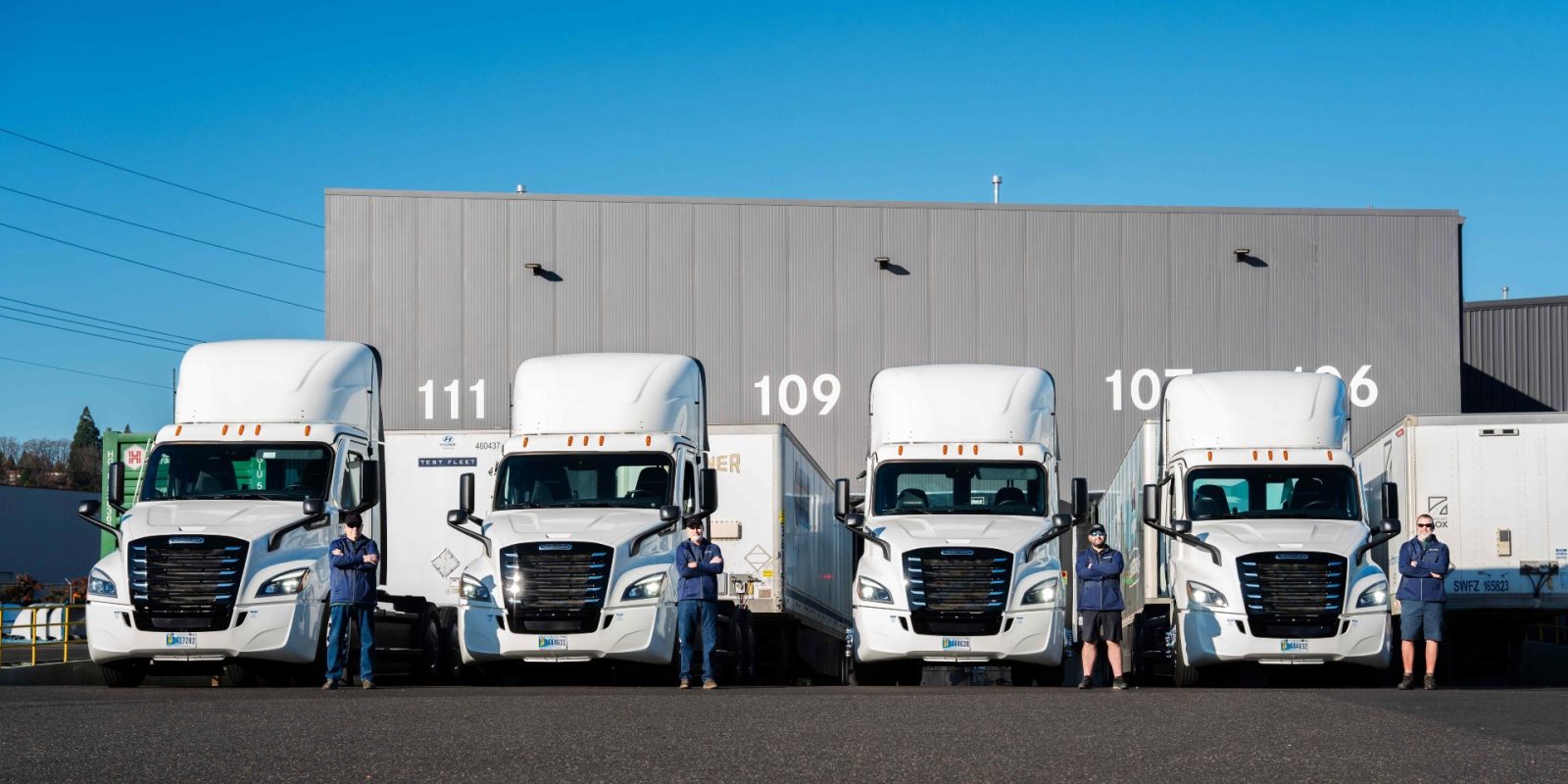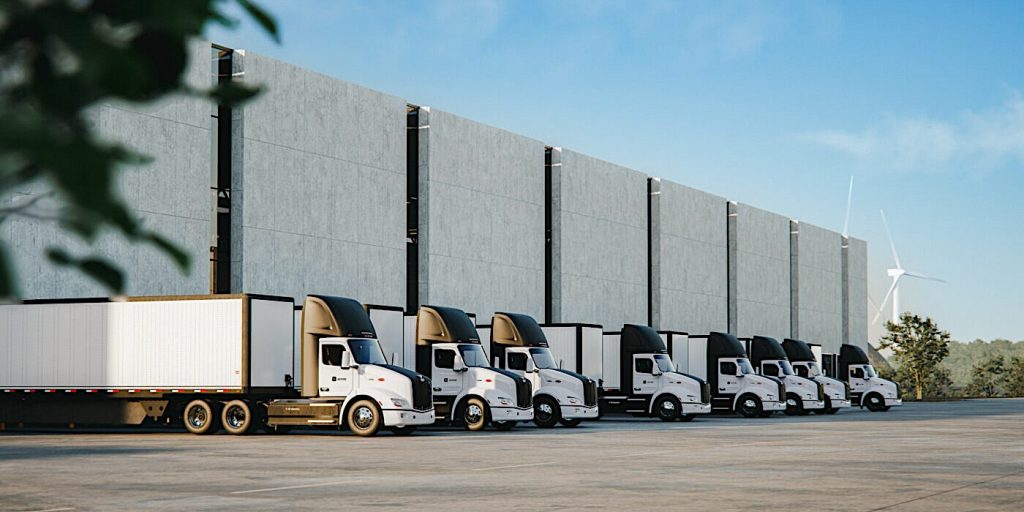
Even without clean fleet tax credits and cash-on-the-hood incentives, fleet managers are working hard to maximize their ROI on vehicle assets and reduce their total cost of ownership – and they’re increasingly turning to data‑driven telematics solutions to help.
Telematics use data gathered from sensors embedded in a vehicle to monitor its operations. When collected and interpreted correctly, that data can be used to improve fleet safety, boost operational efficiency, and enable predictive maintenance that reduces (if not eliminates) unexpected downtime. Those are real benefits, with some analysts showing up to 30% savings in repair costs even before you factor in the fuel savings from EVs that, according to MAN CEO Alexander Vlaskamp, will cover the added cost of a BEV in less than three years.
As you can imagine, that’s a big business – and the global market for vehicle telematic platforms is projected to reach an impressive $127 billion in the next decade, and the rush is on to get OEMs like Ford (through Ford Pro) and Volvo (who has a deal with Geotab) to integrate digital solutions into their vehicles.
We originally covered these topics back in February, ahead of the ACT Expo. You can read that original article, below, and let us know what you think of the OEMs’ telematics’

Last month, Geotab signed a deal with Volvo Group to integrate the manufacturer’s vehicle data API into Geotab’s telematics platform. It’s the latest in a recent onslaught of such deals between telematics providers and OEMs that begs the question: what’s in it for the OEMs?
Almost all modern cars and trucks are “connected” in some way. Ford, for example, began fitting the FordPass Connect modem on all its vehicles in the 2020 model year, and the vehicle (and driver) data gathered powers the Ford Pro fleet management platform and enables offerings like the company’s E-Switch Assist, which enables Ford fleet managers to identify which of its ICE-powered F-150 and Transit assets are ready to make the switch to EV.
“Smart tools informed by data like E-Switch Assist are opening up many new conversations with our commercial customers large and small about EV readiness; we’re already using E-Switch Assist regularly in consultations to help organizations determine if electric trucks and vans are right for them,” says Nate McDonald, EV strategy and cross vehicle brand manager at Ford Pro. “The importance of these tools and technologies goes beyond selling a customer a new vehicle—it changes mindsets about whether electric vehicles will work for their business while potentially saving them time and money.”
So, it makes sense for manufacturers to build that connectivity into their vehicles and makes even more sense to use that data connection to populate a fleet management dashboard that makes it painless for fleet managers to monitor their assets within a trusted ecosystem. Think Android vs. iPhone, and the pain that would go into switching from one to the other after a decade or so of constant interaction – because that’s how the OEMs are looking at it.
Why, then, would an OEM open up that data stream to a third party like Geotab?
The answer, presumably, is that that data sharing is a two-way street: the manufacturer’s are opening up their APIs to Geotab, and Geotab is sharing at least some of the data from other manufacturers with their industry partners.
And Geotab has a lot of partners:
- In 2019, Geotab began working with Ford to integrate Ford’s telematics data into its fleet management platform
- In 2020, Geotab began integrating with GM and its OnStar telematics in North American markets
- In 2022, Geotab began partnering with Stellantis’ Free2move car sharing brand, providing full telematics integration into the MyGeotab platform in North America
- In April of 2024, Geotab partnered with Mobilisights to integrate data from Stellantis’ European brands, including Opel, Fiat, Alfa Romeo, Citroën, and Peugeot
- In September of 2024, Geotab announced a new partnership with VW Group Info Services aimed at improving the company’s data integration across its brands
- A deal with Rivian, VW’s partner in a $5 billion joint software venture, followed soon after
All of those players are convinced that the data coming from their vehicles can produce enough value to seriously impact fleet ROI.
Fleet managers seem convinced, too. In a recent McKinsey survey, nearly 57% of EV buyers said they were willing to switch brands in order to get better connectivity features. And, if you’ve ever worked in “a Ford shop” or “a Chevy shop” you already know what a huge that deal that number might be to an OEM.
McKinsey connectivity survey

In that point of view, working with a trusted, universal platform like Geotab who doesn’t have a dog in the vehicle sales fight makes sense. If the Ford Transit the fleet buyer is looking at plays well with their fleet auditing software and systems and the Nissan NV doesn’t – well, it doesn’t really matter if Nissan’s fleetail guy is giving you a better deal at that point. It’s just too painful to operate a second dashboard for one subset of assets.
The man-hours saved with a universal and brand agnostic fleet management platform may not be the easiest to trace all the way to the bottom line, but they’re there.
Additionally, the Geotab dashboard can be configured to collect and even analyze data that’s specifically relevant to EVs. Information like charging history, and regenerative braking efficiency, and overall battery health – data that, over thousands of vehicles, can give fleet managers real insight into how long the new electric vehicles they’re considering will last compared to the gas and diesel vehicles they have experience with.
Geotab research shows that EV batteries could last 20 years or more if they degrade at an average rate of 1.8% per year, as we have observed.
According to our data, the simple answer is that the vast majority of batteries will outlast the usable life of the vehicle and will never need to be replaced. If an average EV battery degrades at 1.8% per year, it will still have over 80% state of health after 12 years, generally beyond the usual life of a fleet vehicle.
Telematics integrations can also help optimize a fleet’s charging schedules, both by scheduling EV charging for lower priced, off-peak hours and by identifying the most dependable high-speed charging stations along regular routes to minimize down time for both vehicles and drivers.
Finally, these data-driven platforms can provide fleet managers tools for tracking and reporting things like carbon emissions and overall energy consumption, which can streamline ESG reporting processes and make it easier for the worker bees to get regulators, administrators, and managers the sort of charts, tables, and graphs they love.
Something like that, anyway.
You can check out my Quick Charge with Nate McDonald, EV strategy and cross vehicle brand manager at Ford Pro, who explores how Ford’s in-house telematics can help fleet managers decarbonize, and head over to Geotab to find out more about their brand agnostic fleet management dashboard, below. Enjoy!
EV or gas – which is right for you?
SOURCES: Fleet Europe, Ford Pro, Geotab, McKinsey; add’l links in article.

If you’re considering going solar, it’s always a good idea to get quotes from a few installers. To make sure you find a trusted, reliable solar installer near you that offers competitive pricing, check out EnergySage, a free service that makes it easy for you to go solar. It has hundreds of pre-vetted solar installers competing for your business, ensuring you get high-quality solutions and save 20-30% compared to going it alone. Plus, it’s free to use, and you won’t get sales calls until you select an installer and share your phone number with them.
Your personalized solar quotes are easy to compare online and you’ll get access to unbiased Energy Advisors to help you every step of the way. Get started here.
FTC: We use income earning auto affiliate links. More.





Comments